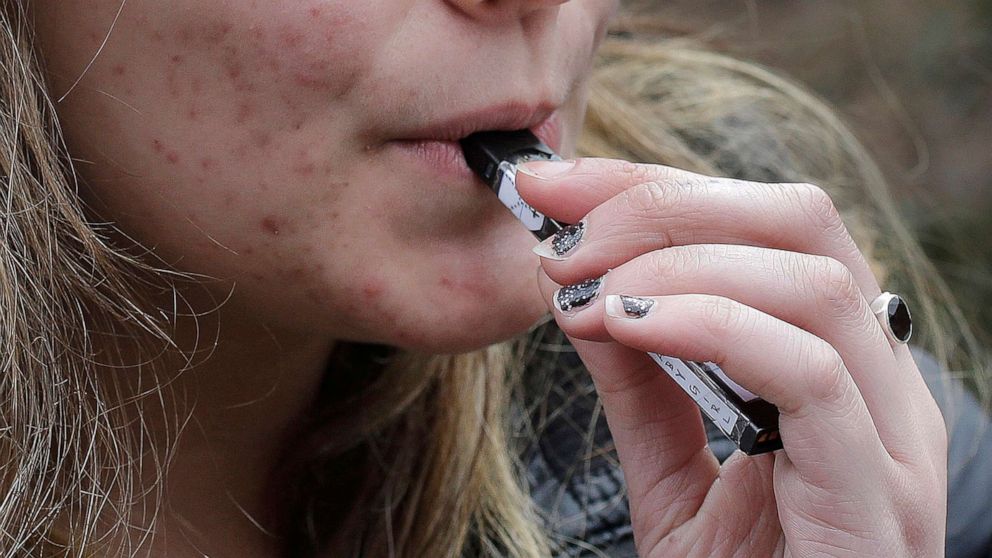Youth who try e-cigarettes more likely to become daily tobacco cigarette smokers: Study
E-cigarettes have long been touted by manufacturers as a safe alternative to tobacco cigarettes, but new research adds a dangerous twist, finding e-cigarette use can increase the risk of becoming a daily tobacco cigarette smoker.
In a four-year study published in the journal Pediatrics, researchers at the University of San Diego found trying an e-cigarette before age 18 more than tripled the chances of becoming a daily tobacco cigarette smoker, from 3% to 10%. The study’s authors concluded rapid growth in youth e-cigarette use will lead to increased daily cigarette smoking in U.S. young adults.
The researchers further noted “the recent large increase in [youth] e-cigarette use will likely reverse the decline in cigarette smoking among USA young adults."
Secretary of Health and Human Services Alex Azar said the FDA's and CDC’s National Youth Tobacco Survey noted youth e-cigarette use jumped from less than 5% to 30% between 2013 and 2019 -- a rise he called “incredibly rapid."
Secretary Azar said the rise, as well as evidence youth were drawn to particular e-cigarette flavors, were the onus for the FDA's 2019 priority enforcement of illegal kid-friendly e-cigarette flavor marketing.
The concerning association between e-cigarettes and increased tobacco cigarette use is not limited to youths. Multiple peer-reviewed studies have shown similar findings in adults, calling into question the idea e-cigarettes are an ideal substitute for traditional smoking.
As manufacturers continue marketing e-cigarettes as a safe alternative to tobacco cigarettes, that safety remains heavily debated. This study added to the growing knowledge on e-cig safety and found a hidden danger: E-cigs may lead to cigarette addiction.
Nancy Anoruo, M.D., MPH, is a faculty physician at Harvard Medical School whose work on e-cigarettes has been published by the American Thoracic Society and American Journal of Respiratory and Critical Care Medicine. She is a member of ABC News Medical Unit.
Dr. Rose Marie Leslie contributed to this report.




